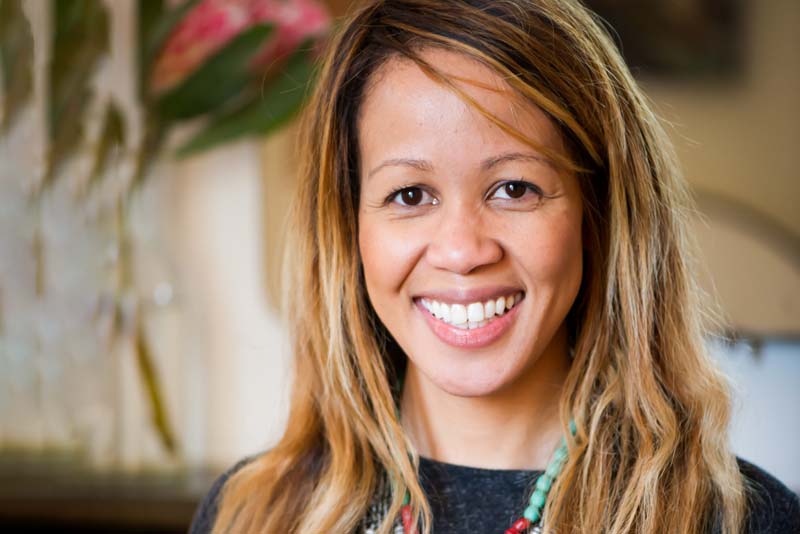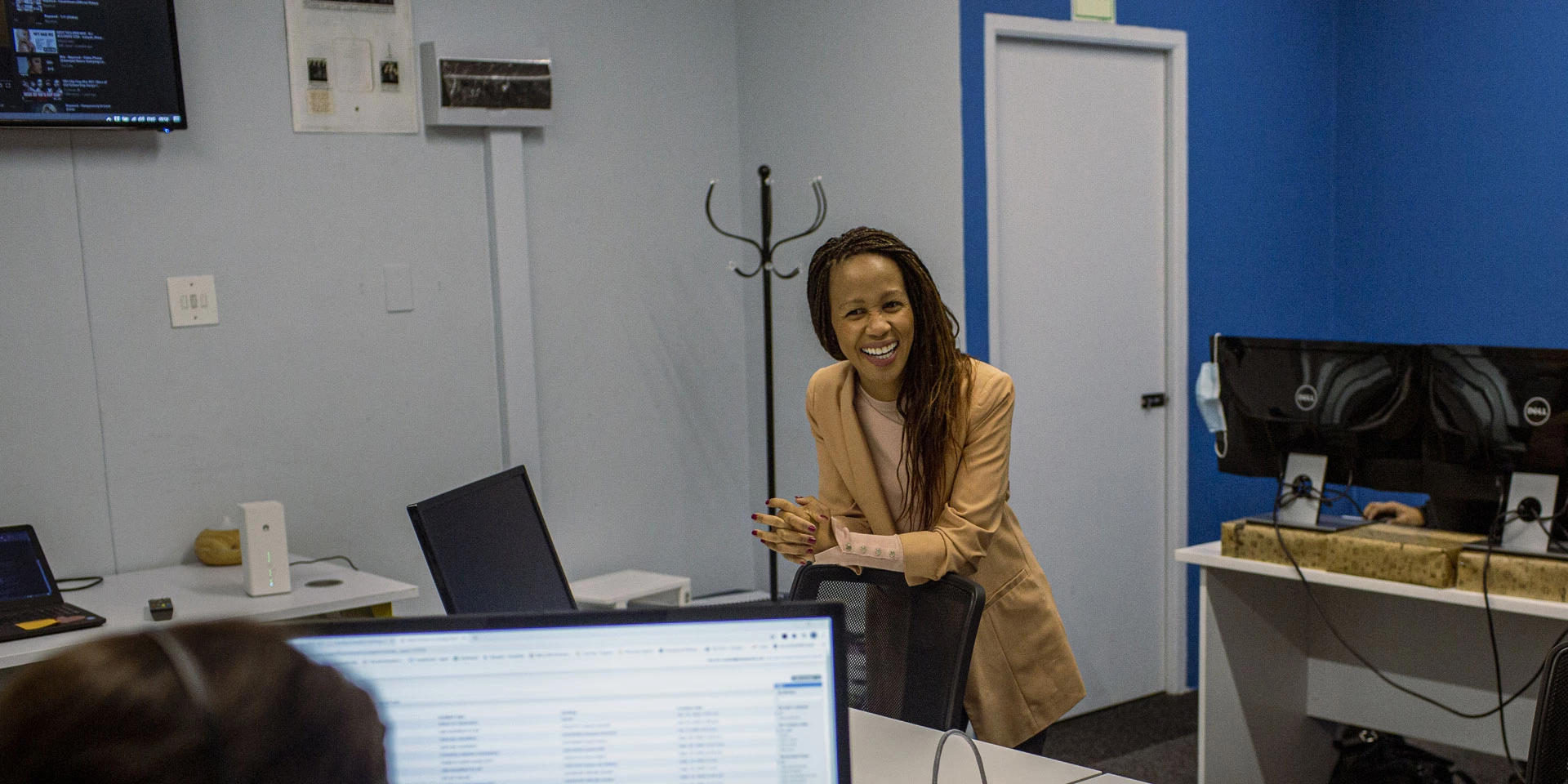By Gloria Mwaniga Odary
Aisha Pandor, a human geneticist by training, never expected to end up as an entrepreneur. It happened by accident in 2014 when Pandor and her husband, software engineer Alen Ribic, started looking for someone to help care for their young daughter in the family’s Johannesburg, South Africa home.
“We struggled to find someone,” she remembered. “It was frustrating and took so long.”
The frustration got Pandor and Ribic thinking about how technology could connect clients with domestic workers. To bring their idea to life, the couple quit their jobs, sold their house and car, and moved in with Pandor’s parents. It was supposed to be a temporary solution. But they remained there for four years as they created and launched SweepSouth, an on-demand booking platform that quickly and securely connects clients and domestic workers — including cleaners, child-care providers, and gardeners.
Pandor soon realized that entrepreneurship was nothing like academia. The early days were fast-paced and full of uncertainty. “It was definitely very crazy and it felt like the house was on fire,” she said.

Aisha Pandor. Photo courtesy: Aisha Pandor
Things weren’t that much smoother on the the home front, either. To begin with, Pandor’s family and friends didn’t see why she was throwing away a PhD in human genetics or leaving her plum job as a management consultant. Pandor is quick to admit that she and her husband made mistakes in the beginning. “In hindsight, I would probably have done things differently. I think that we went through a lot of unnecessary personal discomfort in starting our business because we thought that as an entrepreneur, you've got to show your investors that you're so invested that you're willing to live on next to nothing, and be very, very uncomfortable for a long time.’’
But those days are over. Six years later, SweepSouth has grown and brought many investors on board. So far, the start-up has raised $6 million from Vinny Lingham’s Newtown Partners, Naspers Foundry, Futuregrowth, Smollan Group, 500 Startups, The Michael and Susan Dell Foundation, the Vumela Fund, and DJ Black Coffee. It has connected thousands of SweepStars — the term the company uses to describe its workers — with clients in Cape Town, Durban, Johannesburg, and Pretoria. According to Pandor, some 84 percent of SweepStars are their household’s primary breadwinners, while 71 percent of them were previously unemployed. The company’s success rate in finding jobs for workers who sign on to the platform is notable in a country with an unemployment rate of 23 percent (as of the second quarter of 2020).
SweepSouth has also expanded to provide clients with a wider range of home services. “We've branched into gardening and into a platform that offers electricians, plumbers, and handymen. There's a lot of scope for growth of the platform,” she said.
The woman at the helm of one of South Africa’s fastest growing tech start-ups is not about to slow down. In a bid to scale beyond the South African market, SweepSouth has just launched in Kenya and is considering a move into West Africa... “We are looking at other countries on the continent where people experienced the same sort of issues we did when we first came up with the idea for SweepSouth. The sky’s the limit.” she said.
